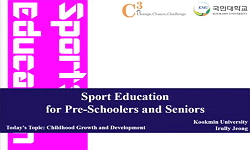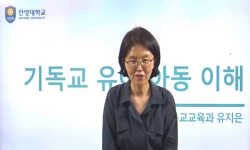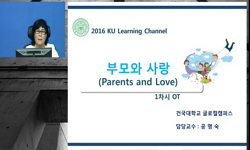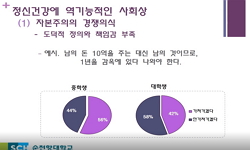Purpose: The purpose of this study was to identify factors associated with sugar-sweetened beverage consumption of Korean preschool children. Methods: Subjects for the study were recruited using the convenience sampling method. A total of 162 mothers ...
http://chineseinput.net/에서 pinyin(병음)방식으로 중국어를 변환할 수 있습니다.
변환된 중국어를 복사하여 사용하시면 됩니다.
- 中文 을 입력하시려면 zhongwen을 입력하시고 space를누르시면됩니다.
- 北京 을 입력하시려면 beijing을 입력하시고 space를 누르시면 됩니다.

학령전기 아동 단 음료 섭취 관련 요인 = Factors Associated with Sugar-Sweetened Beverage Consumption in Preschool Children
한글로보기부가정보
다국어 초록 (Multilingual Abstract)
Purpose: The purpose of this study was to identify factors associated with sugar-sweetened beverage consumption of Korean preschool children. Methods: Subjects for the study were recruited using the convenience sampling method. A total of 162 mothers with preschool children aged 3 to 5 years participated in the study using a self-reported questionnaire and provided data regarding the frequency and quantum of the children’s sugar-sweetened beverage consumption days in a week and the factors associated with such consumption. Hierarchical multiple regression analysis was conducted to analyze the factors associated with the sugar-sweetened beverage consumption of preschool children. Results: Among the children -specific factors, age (β=.13, p=.015) was positively associated, while fruits/vegetable consumption (β=-.22, p<.001) was negatively associated with sugar-sweetened beverage consumption of the preschool children. Among the mother-specific factors, fruits/vegetable consumption of mothers was negatively associated (β=-.16, p=.006), while the sugar-sweetened beverage consumption of the mothers was positively associated with the sugar-sweetened beverage consumption of the preschool children (β=.27, p<.001). In addition, the maternal restrictive feeding style was negatively associated with sugar-sweetened beverage consumption of preschool children (β =-.23, p<.001). Conclusion: Based on these results, interventions targeted at children, parents, and the family environment should be developed to reduce the consumption of sugar-sweetened beverages in early childhood.
1 정경미 ; 김수연, "한국형 아동 섭식행동 질문지(K-CFQ)의 타당화 연구" 한국건강심리학회 22 (22): 317-338, 2017
2 라진숙 ; 채선미, "학령전기 아동의 신체활동 수준과 어머니의 신체활동 증진행위" 한국모자보건학회 17 (17): 173-183, 2013
3 송혜영 ; 주원진 ; 방양희, "학령전기 아동 어머니의 심리, 양육 및 관계적 특성이우울 수준에 미치는 영향" 한국지역사회간호학회 29 (29): 393-403, 2018
4 Nickelson, J., "What proportion of preschool-aged children consume sweetened beverages?" 84 (84): 185-194, 2014
5 Kit, B. K., "Trends in sugar -sweetened beverage consumption among youth and adults in the United States: 1999-2010" 98 (98): 180-188, 2013
6 Bleich, S. N., "Trends in beverage consumption among children and adults, 2003-2014" 26 (26): 432-441, 2018
7 Schwartz, M. B., "The relationship between parental behaviors and children’s sugary drink consumption is moderated by a television in the child’s bedroom" 11 (11): 560-568, 2015
8 김재현 ; 윤성하 ; 황승식 ; 심정옥 ; 채현욱 ; 이연주 ; 이지혁 ; 김순철 ; 임도희 ; 양세원 ; 오경원 ; 문진수, "The 2017 Korean National Growth Charts for children and adolescents: development, improvement, and prospects" 대한소아청소년과학회 61 (61): 135-149, 2018
9 van Ansem, W. J., "Socio-economic inequalities in children's snack consumption and sugar-sweetened beverage consumption: The contribution of home environmental factors" 112 (112): 467-476, 2014
10 He, M., "Screen-related sedentary behaviors: Children’s and parents attitudes, motivations, and practices" 42 (42): 17-25, 2010
1 정경미 ; 김수연, "한국형 아동 섭식행동 질문지(K-CFQ)의 타당화 연구" 한국건강심리학회 22 (22): 317-338, 2017
2 라진숙 ; 채선미, "학령전기 아동의 신체활동 수준과 어머니의 신체활동 증진행위" 한국모자보건학회 17 (17): 173-183, 2013
3 송혜영 ; 주원진 ; 방양희, "학령전기 아동 어머니의 심리, 양육 및 관계적 특성이우울 수준에 미치는 영향" 한국지역사회간호학회 29 (29): 393-403, 2018
4 Nickelson, J., "What proportion of preschool-aged children consume sweetened beverages?" 84 (84): 185-194, 2014
5 Kit, B. K., "Trends in sugar -sweetened beverage consumption among youth and adults in the United States: 1999-2010" 98 (98): 180-188, 2013
6 Bleich, S. N., "Trends in beverage consumption among children and adults, 2003-2014" 26 (26): 432-441, 2018
7 Schwartz, M. B., "The relationship between parental behaviors and children’s sugary drink consumption is moderated by a television in the child’s bedroom" 11 (11): 560-568, 2015
8 김재현 ; 윤성하 ; 황승식 ; 심정옥 ; 채현욱 ; 이연주 ; 이지혁 ; 김순철 ; 임도희 ; 양세원 ; 오경원 ; 문진수, "The 2017 Korean National Growth Charts for children and adolescents: development, improvement, and prospects" 대한소아청소년과학회 61 (61): 135-149, 2018
9 van Ansem, W. J., "Socio-economic inequalities in children's snack consumption and sugar-sweetened beverage consumption: The contribution of home environmental factors" 112 (112): 467-476, 2014
10 He, M., "Screen-related sedentary behaviors: Children’s and parents attitudes, motivations, and practices" 42 (42): 17-25, 2010
11 Gortmaker, S. L., "Reducing obesity via a school based interdisciplinary intervention among youth:Planet health" 153 (153): 409-418, 1999
12 Harris, T. S., "Paternal modeling, household availability, and paternal intake as predictors of fruit, vegetable, and sweetened beverage consumption among African American children" 85 : 171-177, 2015
13 Park, S., "Mothers'child-feeding practices are associated with children's sugar-sweetened beverage intake" 145 (145): 806-812, 2015
14 박미혜 ; 배윤정 ; 최미경, "Maternal correlates of vegetable preference and consumption in preschool-aged children" 한국영양학회 54 (54): 54-66, 2021
15 Birch, L., "Influence on the development of chidren’s eating behaviours: From infancy to adolescence" 68 (68): s1-s11, 2007
16 Fox, M. K., "Food consumption patterns of young preschoolers: Are they starting offon the right path?" 110 (110): S52-S59, 2010
17 Siega-Riz, A. M., "Food consumption patterns of infants and toddlers: Where are we now?" 110 (110): s38-s51, 2010
18 Cole, T. J., "Establishing a standard definition for child overweight and obesity worldwide:International survey" 320 : 1240-1246, 2000
19 Swinburn, B., "Dissecting obesogenic environments: The development and application of a framework for identifying and prioritizing environmental interventions for obesity" 29 (29): 563-570, 1999
20 Paes, V. M., "Determinants of sugar-sweetened beverage consumption in young children: A systematic review" 16 (16): 903-913, 2015
21 Weihrauch-Blüher, S., "Current guidelines for obesity prevention in childhood and adolescence" 11 (11): 263-276, 2018
22 Foo, L. H., "Correlates of sugar-sweetened beverage consumption of Malaysian preschoolers aged 3 to 6 years" 20 (20): 552-563, 2020
23 Mikkilä, V., "Consistent dietary patterns identified from childhood to adulthood: The cardiovascular risk in young finns study" 93 (93): 923-931, 2005
24 Birch, L. L., "Confirmatory factor analysis of the Child feeding questionnaire: A measure of parental attitudes, beliefs and practices about child feeding and obesity proneness" 36 (36): 201-210, 2001
25 Bel-Serrat, S., "Clustering of multiple energy balance -related behaviors in school children and its association with overweight and obesity -WHO European Childhood Obesity Surveillance Initiative (COSI 2015⁻2017)" 11 (11): 511-530, 2019
26 Cheah, C. S., "Chinese and Korean immigrants' early life deprivation: An important factor for child feeding practices and children's body weight in the United States" 74 (74): 744-752, 2012
27 van de Gaar, V. M., "Children's sugar-sweetened beverages consumption: Associations with family and home-related factors, differences within ethnic groups explored" 17 : 195-205, 2017
28 Howe, L. D., "Changes in ponderal index and body mass index across childhood and their associations with fat mass and cardiovascular risk factors at age 15" 5 (5): e15186-, 2010
29 Hwang, I. T., "Body mass index trajectories and adiposity rebound during the first 6 years in Korean children:Based on the national health information database, 2008-2015" 15 (15): e0232810-, 2020
30 Bassul, C., "Associations between the home environment, feeding practices and children's intakes of fruit, vegetables and confectionary/sugar -sweetened beverages" 17 (17): 4837-4857, 2020
31 Osborne, J. W., "Advantages of hierarchical linear modeling" 7 (7): 1-4, 2000
32 서미혜 ; 이원영 ; 김성수 ; 강재헌 ; 강지현 ; 김경곤 ; 김보연 ; 김양현 ; 김원준 ; 김은미 ; 김현수 ; 신윤아 ; 신혜정 ; 이규래 ; 이기영 ; 이상엽 ; 이성규 ; 이주호 ; 이창범 ; 정소정 ; 조영혜 ; 최경묵 ; 한정순 ; 유순집 ; 대한비만학회 진료지침위원회, "2018 Korean Society for the Study of Obesity Guideline for the Management of Obesity in Korea" 대한비만학회 28 (28): 40-45, 2019
동일학술지(권/호) 다른 논문
-
지역사회 노인의 저체중 영향요인: 2020년 노인실태조사 중심으로
- 한국보건간호학회
- 박혜련
- 2022
- KCI등재
-
베트남 결혼이주여성의 우울감 영향요인: 2018년 전국다문화가족실태조사를 중심으로
- 한국보건간호학회
- 이가언
- 2022
- KCI등재
-
- 한국보건간호학회
- 이숙영
- 2022
- KCI등재
-
포스트 코로나 시기 농촌 거주 노인의 호흡기감염 예방 프로그램 개발: 보건진료 전담공무원 대상 델파이 기법
- 한국보건간호학회
- 권명순
- 2022
- KCI등재





 ScienceON
ScienceON DBpia
DBpia







